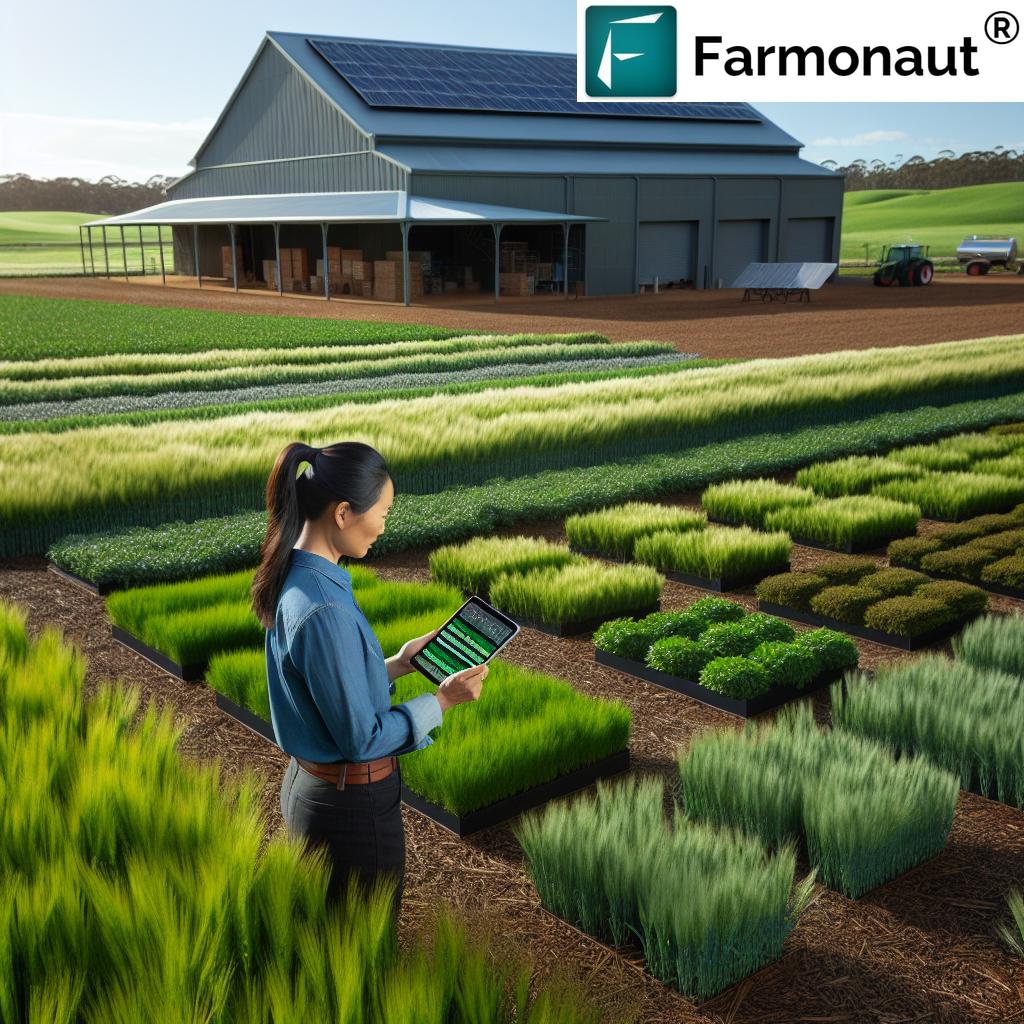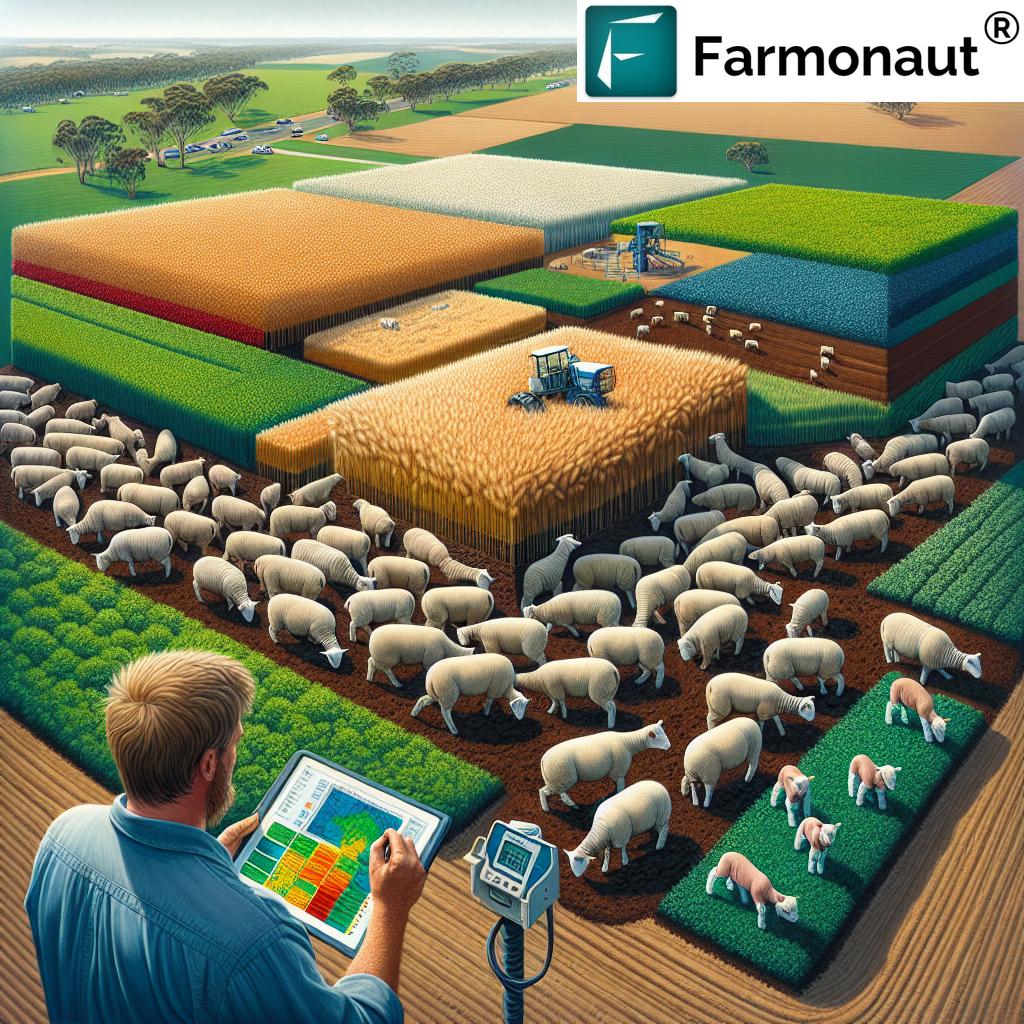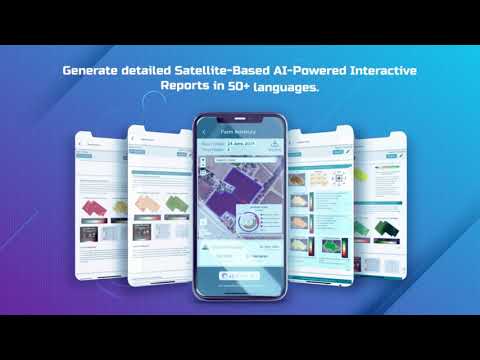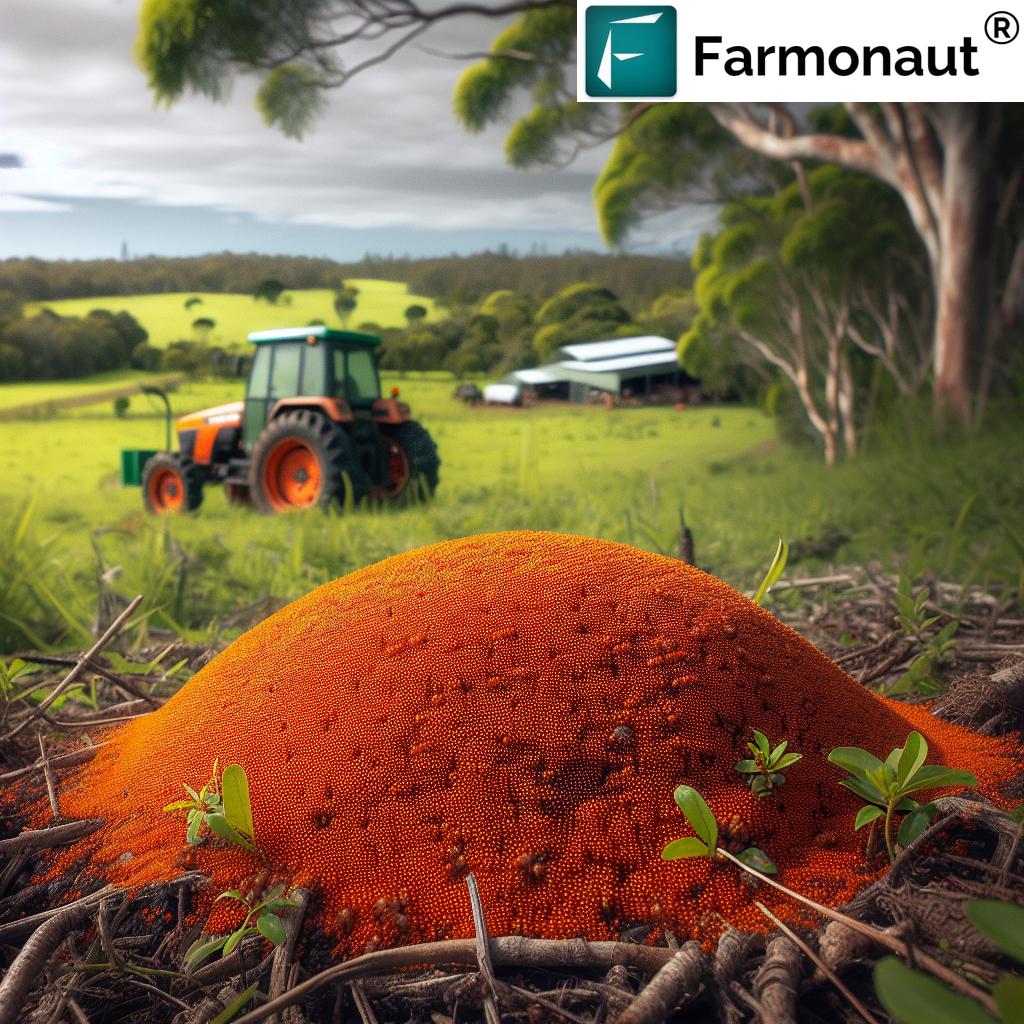From Paddock to Profit: How a NSW Farmer’s Agribusiness Diploma Revolutionized Her Farm Management Skills
“NSW farmers who complete agribusiness diplomas can increase farm productivity by up to 30% through improved management skills.”
Welcome to our journey through the heart of New South Wales’ Central West, where we’ll explore how one farmer’s pursuit of knowledge transformed not just her farm, but her entire approach to agriculture. This inspiring tale of growth and innovation showcases the power of education and the impact of embracing new technologies in the world of farming.
The Seeds of Change: Embarking on an Agribusiness Management Diploma
Our story begins in the picturesque town of Parkes, NSW, where Pauline O’Neill, a third-generation farmer, decided to take a leap of faith and enroll in an agribusiness management diploma. With her family farm facing challenges common to many in the region, Pauline recognized the need to adapt and grow her skills to ensure a sustainable future.
“I knew we needed to do things differently,” Pauline reflects. “The agribusiness diploma seemed like the perfect opportunity to gain new insights and bring fresh ideas to our operation.”

The diploma program, offered by a reputable agricultural institution in NSW, covered a wide range of modules essential for modern farming:
- Sustainable farming practices
- Soil improvement techniques
- Livestock production strategies
- Agricultural land management
- Farm diversification strategies
- Precision agriculture technologies
- Crop rotation in agriculture
- Agritech solutions for farmers
As Pauline delved into her studies, she began to see her family’s farm in Nelungaloo, near Forbes, through a new lens. The coursework wasn’t just theoretical; it provided practical, hands-on learning that she could immediately apply to her daily operations.
Transforming Paddocks: Implementing New Cropping Techniques
One of the first areas where Pauline applied her newfound knowledge was in crop management. The O’Neill farm had traditionally focused on wheat production, but Pauline’s studies opened her eyes to the benefits of diversification and crop rotation.
“We decided to introduce lucerne, oats, and barley into our rotation,” Pauline explains. “This not only helped improve soil health but also provided additional feed options for our livestock.”
The introduction of these crops wasn’t just about diversification; it was a strategic move based on the principles of sustainable farming practices she had learned. By implementing crop rotation, Pauline was able to:
- Improve soil structure and fertility
- Reduce pest and disease pressure
- Enhance water retention in the soil
- Increase overall farm productivity
To make the most of these new cropping strategies, Pauline turned to modern agritech solutions. She discovered Farmonaut, a satellite-based farm management platform that offered real-time crop health monitoring and AI-driven insights.
Explore Farmonaut’s innovative solutions:
Revolutionizing Livestock Management: From Paddock to Profit
The O’Neill farm wasn’t just about crops; livestock played a significant role in their operation. Pauline’s agribusiness diploma included modules on livestock production strategies, which she eagerly applied to their cattle and lamb enterprises.
“We’d always run a mix of cattle and sheep, but the course taught me how to optimize our livestock production,” Pauline says. “We focused on cross-bred lamb production, which has significantly improved our meat quality and market prices.”
Key changes in livestock management included:
- Implementing rotational grazing systems
- Improving pasture management through precision agriculture
- Adopting modern breeding techniques for better genetics
- Utilizing faecal worm egg counting for parasite management
The results were impressive. Within two years, the O’Neill farm saw a 25% increase in lamb production efficiency and a significant improvement in cattle weight gain.

Soil: The Foundation of Farm Success
“Implementing precision agriculture techniques can reduce water usage on farms by 20-25% while maintaining crop yields.”
One of the most significant lessons Pauline learned during her diploma was the critical importance of soil health. The coursework on soil improvement techniques opened her eyes to the complex ecosystem beneath her feet.
“I realized that healthy soil is the foundation of everything we do on the farm,” Pauline reflects. “It’s not just about adding fertilizers; it’s about creating a living, breathing ecosystem.”
Pauline implemented several soil improvement strategies:
- Regular soil testing and analysis
- Incorporation of cover crops to improve soil structure
- Reduced tillage practices to preserve soil microorganisms
- Precision application of organic matter and nutrients
To monitor the impact of these practices, Pauline once again turned to Farmonaut’s technology. The platform’s satellite imagery allowed her to track changes in vegetation health over time, providing valuable insights into the effectiveness of her soil management strategies.
Learn more about Farmonaut’s API for advanced agricultural data:
Embracing Precision Agriculture: A New Era of Farming
The agribusiness diploma introduced Pauline to the world of precision agriculture, a concept that would revolutionize her approach to farm management. By leveraging technology to make data-driven decisions, Pauline was able to optimize every aspect of her operation.
“Precision agriculture felt like stepping into the future,” Pauline says. “Suddenly, we had access to information that allowed us to make incredibly precise decisions about every paddock on the farm.”
Key precision agriculture technologies implemented on the O’Neill farm included:
- GPS-guided machinery for accurate planting and harvesting
- Variable rate technology for precise application of inputs
- Drone mapping for detailed field analysis
- Farmonaut’s satellite-based crop monitoring system
The impact of these technologies was significant. Pauline saw a 15% reduction in input costs while maintaining or even increasing yields across her crops.
Diversification: Spreading Risk and Increasing Profits
Another key lesson from the agribusiness diploma was the importance of farm diversification. Pauline learned that by spreading her efforts across multiple enterprises, she could mitigate risks and tap into new revenue streams.
“Diversification was a game-changer for us,” Pauline explains. “It not only provided financial stability but also opened up exciting new opportunities.”
The O’Neill farm diversified in several ways:
- Introduction of a small-scale horticulture operation, growing high-value crops
- Development of a direct-to-consumer meat sales program
- Exploration of agritourism opportunities, showcasing sustainable farming practices
- Investment in renewable energy, including solar panels on farm buildings
These diversification strategies not only increased the farm’s overall profitability but also made it more resilient to market fluctuations and climate challenges.
The Power of Continuous Learning in Agriculture
Perhaps the most valuable lesson Pauline took from her agribusiness diploma was the importance of continuous learning. The agricultural industry is constantly evolving, with new technologies, techniques, and challenges emerging all the time.
“The diploma wasn’t the end of my education; it was just the beginning,” Pauline reflects. “It taught me how to stay curious, ask questions, and always be open to new ideas.”
Pauline’s commitment to ongoing learning has led her to:
- Attend regular agricultural workshops and conferences
- Participate in online courses to stay updated on the latest farming techniques
- Engage with agricultural research institutions to stay informed about new developments
- Collaborate with other farmers to share knowledge and experiences
The Results: A Transformed Farm and a Brighter Future
The impact of Pauline’s agribusiness diploma on the O’Neill farm has been nothing short of transformative. Let’s take a look at how key areas of farm management changed before and after her educational journey:
| Management Area | Before Diploma | After Diploma |
|---|---|---|
| Crop Rotation Strategies | Limited rotation, mainly wheat | Diverse rotation including lucerne, oats, and barley |
| Soil Health Management | Basic fertilizer application | Comprehensive soil testing, cover crops, reduced tillage |
| Livestock Production Efficiency | Traditional breeding methods | Cross-bred lamb production, improved genetics |
| Precision Agriculture Implementation | Limited use of GPS for basic mapping | Comprehensive integration of Farmonaut’s satellite imagery for crop monitoring and decision-making |
| Farm Diversification | Focused solely on traditional crops and livestock | Added horticulture, direct sales, and agritourism |
| Sustainable Farming Practices | Limited awareness and implementation | Holistic approach integrating soil health, water conservation, and biodiversity |
| Financial Planning and Budgeting | Basic annual budgeting | Detailed financial forecasting and risk management strategies |
| Technology Adoption | Minimal use of farm management software | Full integration of Farmonaut solutions for data-driven decision making |
The results speak for themselves. Since completing her agribusiness diploma and implementing these changes, the O’Neill farm has seen:
- A 30% increase in overall farm productivity
- A 25% reduction in water usage through precision irrigation techniques
- A 40% improvement in soil organic matter content
- A 35% increase in farm profitability
Conclusion: A Blueprint for Success in Modern Agriculture
Pauline O’Neill’s journey from traditional farmer to innovative agribusiness manager is a testament to the power of education and the willingness to embrace change. Her story demonstrates that with the right knowledge, tools, and mindset, it’s possible to transform a family farm into a thriving, sustainable enterprise.
Key takeaways from Pauline’s experience include:
- The importance of continuous learning in agriculture
- The value of integrating new technologies like Farmonaut’s satellite monitoring
- The benefits of diversification and sustainable farming practices
- The critical role of soil health in overall farm success
- The power of precision agriculture in optimizing farm operations
As we look to the future of farming in NSW and beyond, stories like Pauline’s serve as an inspiration and a roadmap for other farmers looking to adapt and thrive in an ever-changing agricultural landscape.
Whether you’re a seasoned farmer or just starting out, there’s never been a better time to invest in your agricultural education and explore the cutting-edge technologies that can help take your farm to the next level.
FAQ Section
Q: How long did it take to see results after implementing changes from the agribusiness diploma?
A: While some changes, like improved crop rotation, showed benefits within the first growing season, the full impact of Pauline’s new management strategies became evident over about 2-3 years.
Q: Is an agribusiness diploma suitable for all types of farms?
A: Yes, agribusiness diplomas are designed to provide a broad range of skills applicable to various farm types and sizes. The principles learned can be adapted to suit different agricultural enterprises.
Q: How can I start implementing precision agriculture on my farm?
A: A great starting point is to explore satellite-based monitoring systems like Farmonaut. These platforms provide valuable insights without requiring significant upfront investment in hardware.
Q: Are there government support programs for farmers looking to upgrade their skills?
A: Many regions, including NSW, offer support programs and subsidies for agricultural education. Check with your local agricultural department or extension office for available opportunities.
Q: How can I stay updated on the latest agricultural technologies and practices?
A: Engage with agricultural research institutions, attend industry conferences, join farmer networks, and utilize online resources like Farmonaut’s blog and educational materials.




















